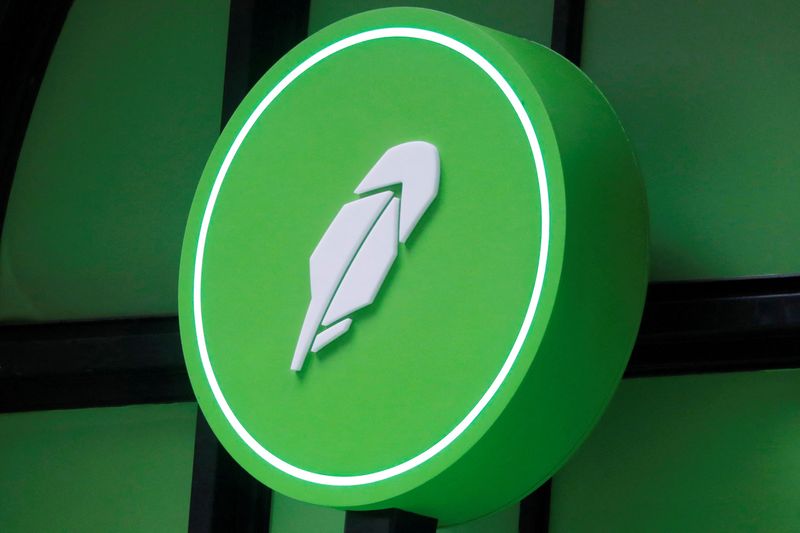By Manya Saini
(Reuters) - Shares of Robinhood (NASDAQ:HOOD) Markets jumped on Wednesday after the financial technology firm launched a credit card, as it expands its product offerings in order to reduce its reliance on market-sensitive trading revenue.
The Menlo Park, California-based company's shares were last up 4% in afternoon trading, having hit their highest since December 2021 earlier in the session.
Retail-investor focused Robinhood is set to offer its premium 'Gold' tier customers a credit card which would have no annual fee, no foreign transaction fees and offers 3% cashback, in the form of reward points, on spends.
"Tieing the credit card to Robinhood's Gold program should be accretive to revenues because of the profitable options trading and use of margin that comes with it," said Michael Ashley Schulman, partner and CIO at Running Point Capital Advisors.
Robinhood was at the center of the 2021 retail trading frenzy, driven by mom-and-pop investors who used the company's commission-free platform to pump money into so-called "meme stocks" during the pandemic-era lockdowns.
In February, the company said it was aiming to expand margins while being focused on driving 'profitable growth' this year, after reporting a surprise quarterly profit.
It has also benefited from the increased activity of retail traders - its main client base - this year against a rally in both the capital as well as crypto markets.
The turnaround in trading activity and an increased focus on profitability have together sparked a rally in the fintech's stock, that has surged over 50% so far this year.

"Robinhood has been strategizing for a while to increase customer excitement, spur engagement, and incentivize more established individual investors," Schulman added.
Short interest in the stock is currently at 5.88% of the free float, with short-sellers sitting on over $200 million in paper losses from the beginning of 2024, as of previous close, according to data from Ortex.